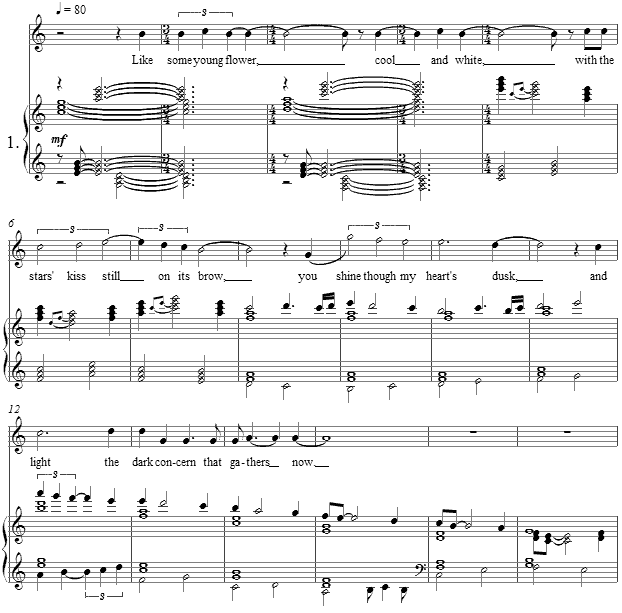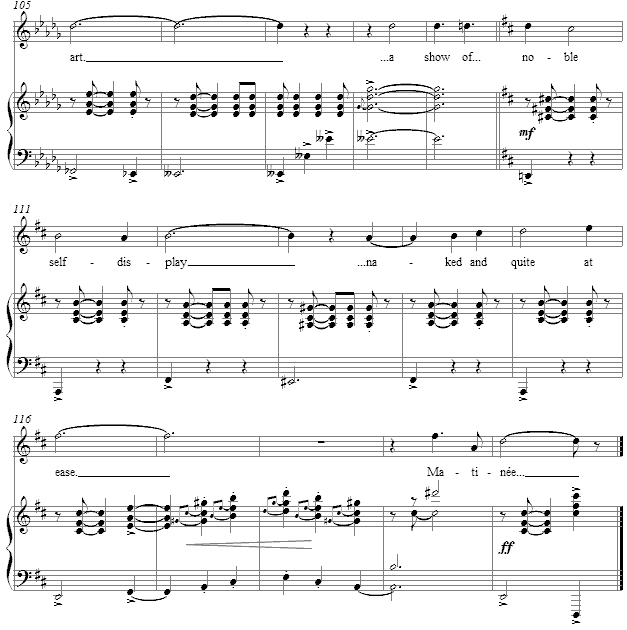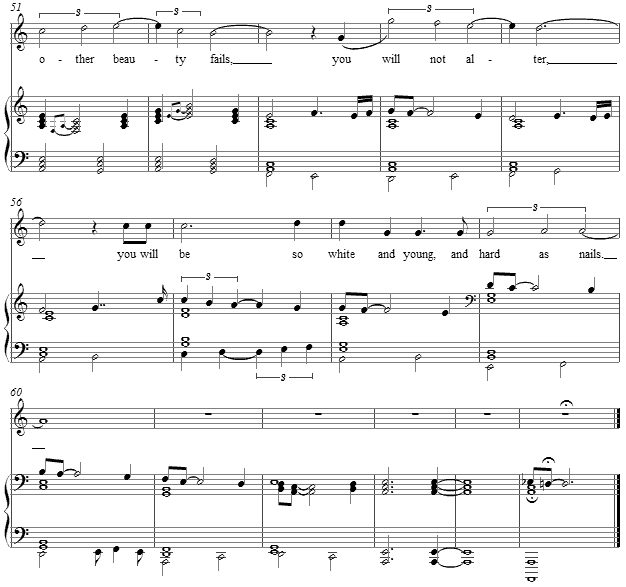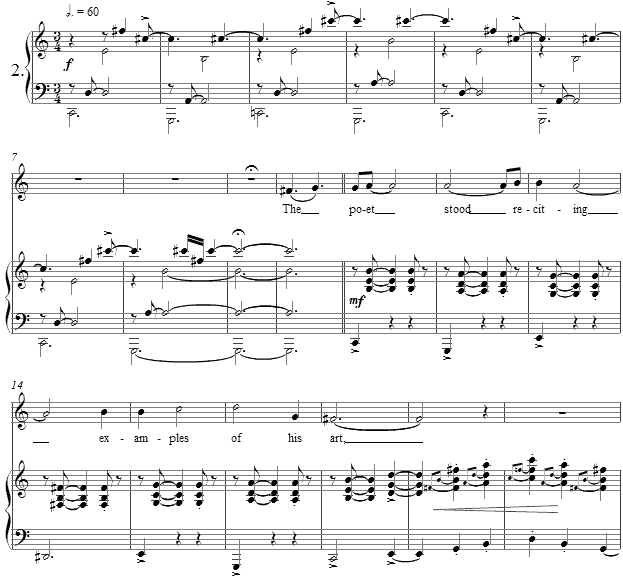Music and Texts of GARY BACHLUND
Vocal Music | Piano | Organ | Chamber Music | Orchestral | Articles and Commentary | Poems and Stories | Miscellany | FAQs
Two Poems of Louis Untermeyer - (2008)

for high voice and piano
i. With a Volume of Heine [ 3 pages, circa 3' 15" ]
Like some young flower, cool and white
With the stars' kiss still on its brow,
You shine through my heart's dusk, and light
The dark concern that gathers now.
Half on my lips, a fearful hope
Starts like a prayer, already planned.
Toward your bright head my fingers grope...
But something holds my hand.
Prayers are not what you want. I see
That, when all other beauty fails,
You will not alter, you will be
So white and young -- and hard as nails.
ii. Matinée [ 5 pages, circa 2' 00" ]
The poet stood reciting
Examples of his art,
Considering removing
The veils about his heart.
Eager and self-revealing,
He did his stripping well,
With every burning poem
Another garment fell.
With passionate abandon
He flung each cloth away;
Exulting in the pleasure
Of noble self-display.
Until upon the platform
Were piled his draperies.
And still the poet gestured,
Naked and quite at ease.
And no one screamed or fainted;
There was no stir or start.
The ladies all applauded
At such a show of art.[ 8 pages, circa " ]
Louis Untermeyer
First published in Harvard's monthly arts periodical, The Dial, Volume 68, pp. 236-236, these two poems are disjointed though they appear as "Two Poems." Another of his poems set to music is End of the Comedy. On that page, there is more information about this American poet, editor and anthologist.
This first of Two Poems refers to a volume of poetry by German poet, Heine, and yet the poem is about personal loss, leaving us with interesting questions about the background to this dramatic situation which is so present while being equally well obscured. The octave leap in the voice conveys the sense of emotional involvement the speaker has with the object of the poem.

The three stanzas of the poem are similarly treated, some alteration in the rhythms to accept the speech rhythms. Nominally in A natural minor, the final cadence darkens with the surprising admission that the object, referred to a "you" and seen to be "white and young" is also finally described as "and hard as nails."
The second poem is quite unlike the somber first poem, and remarkable for its view of the poet as an emotional exhibitionist. Untermeyer tells us this is a "matinée" performance by the poet, and therefore its audience is of "ladies" which "all applauded" the poet's metaphoric nudity. The setting is therefore a light hearted waltz time, as the verses slip by rising half steps to a heightened tone.
The "show of art" is parodied by the half step rise in the last pages. "Noble self-display" resulting in being both "naked and quite at ease" bespeaks an ego which is not always parallel with serious makers of art, but rather with some performers, exhibitionists whose first purpose is to exhibit themselves as much as, if not more than, their "art." We may take Untermeyer's suggestion of this as a truth, for not all poets invest themselves in "self-display." Rather many times they become subservient to their craft. As E. E. Cummings also published in this year's Dial (1920), an opposite sentiment might be seen in Cummings' Hokku. By such a contrast we may be certain that Untermeyer's view of a poet's "matinée" is not an admiring perspective.

The score for Two Poems of Louis Untermeyer is available as a free PDF download, though any major commercial performance or recording of the work is prohibited without prior arrangement with the composer. Click on the graphic below for this piano-vocal score.


